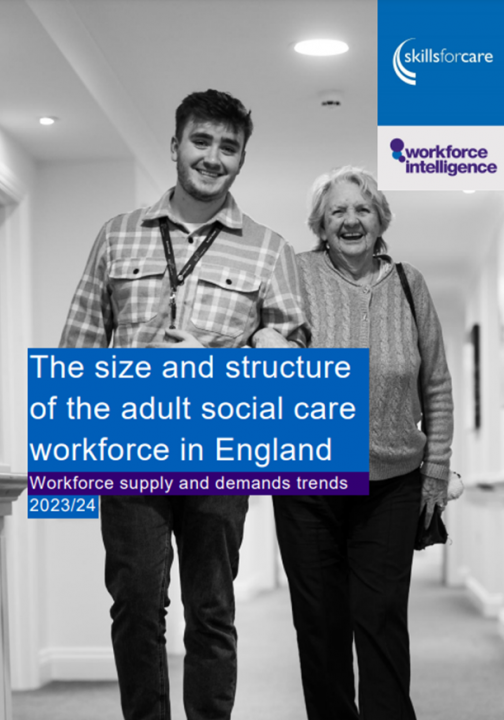Skills for Care has today released its report into the supply and demand trends for the adult social care workforce in England.
The report, titled The size and structure of the adult social care workforce in England – Workforce supply and demands trends 2023/24, explores the size and composition of the adult social care workforce, with this delving into issues such as recruitment and retention, as well as how the workforce has changed since 2019/20. This comes against the backdrop of significant recent fluctuations across workforce supply thanks to things such as policy changes and external influencing factors.
According to the report, the total number of available roles within the adult social care sector during 2023/24 was 1.84 million, with 1.705 million of these being filled. A further 131,000 posts were undergoing active recruitment, however a number of empty posts were being filled by bank or agency staff. The report has identified that independent organisations and local authorities saw around 126,000 bank or agency employees working on any given day – equating to 8.6% of the posts that were filled in 2023/24.

Despite a significant number of vacant roles, the number of posts that were filled in 2023/24 had increased by 4.2% when compared to 2022/23. According to Skills for Care, this increase is the largest that has been seen since their records began over a decade ago. One significant contributor to the increase in filled posts is the number of international workers that have entered the social care sector, following its inclusion on the shortage occupation list at the beginning of 2022.
Whilst there was a reduction in the number of vacant roles within the sector, the report does outline how there is still a high number of free positions, when compared to historical levels. This could be put down to issues with recruitment and retention difficulties, which seems to be inconsistent depending on which employer is consulted.
In response to the report, the Local Government Association’s Community Wellbeing Board Chairman, Cllr David Fothergill, said:
“The adult social care workforce provide committed and compassionate care and support around the clock, they are a critical component in helping to ensure people who draw on care and support are best able to live an equal life. This key workforce strategy rightly highlights the importance of all who work in care, and the opportunities and challenges the sector faces in the years ahead. Skills for Care are to be commended for taking this on and working so constructively with a range of people and partners.
“Care worker pay urgently needs an uplift to help fill the tens of thousands of vacancies across the country, councils and care providers need support in recruiting the right people to do this crucial work. Councils are calling for a long-term care workforce plan, alongside immediate investment in adult social care to tackle the urgent issues affecting services. We hope the Government takes note of the valuable work Skills for Care have done and the recommendations they are making.“
Image credit: iStock



















